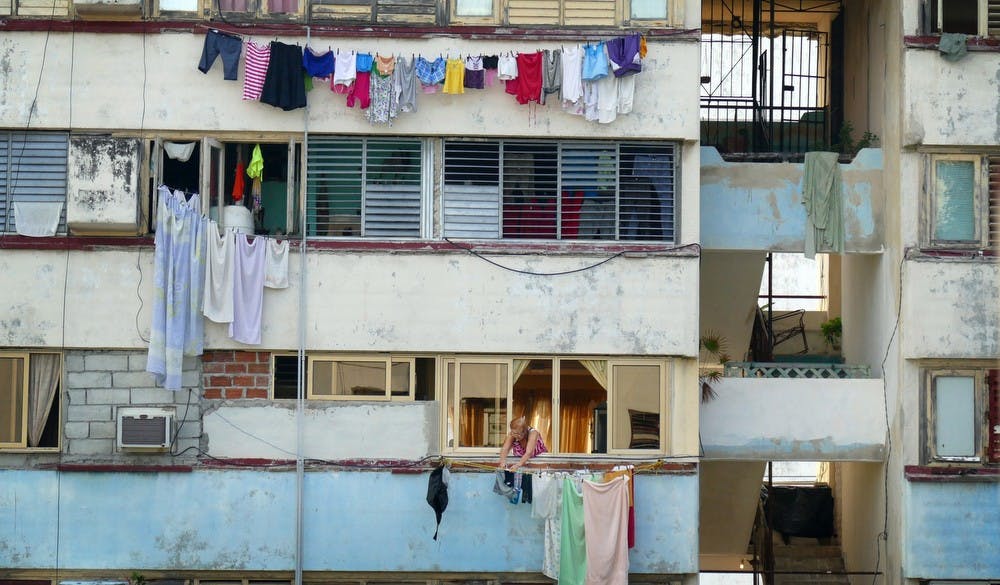A vacation with no free Wi-Fi or McDonalds may not sound like a vacation at all to some, but for travelers looking to experience a culture untouched by traditional tourism, Cuba is one of the last places remaining.
Since diplomatic relations have been restored between the U.S. and Cuba many travelers have taken advantage of the more accommodating travel regulations in order to explore an island relatively untouched by American tourism.
“I want to go to take cooking classes, learn how to salsa dance and see the classic cars. I’m not even a car person and I still think it’s cool that they’ve kept cars from the fifties running to this day," ASU alumna and avid traveler Heather Lucadamo said.
She said friends that have traveled to Cuba told her it is like an Island stuck in time, which could be compared it to a 1950s version of Costa Rica.
Ordinary tourism is still restricted with new travel requirements. Under the new regulations, a trip is considered purposeful travel if it meets one of 12 specific purposes that Office of Foreign Asset Control has established. Purposeful travel allows departure to Cuba without applying for a license.
The 12 categories may seem strict at first, but they are actually quite broad. Athletic exhibitions, public performance, professional research and journalistic activity are a few. Educational activities are one purpose that the ASU Alumni Association is fulfilling with their scheduled tours of Cuba.
Rekha Athreya is the marketing and communications specialist for the ASU Alumni Association and writes a blog about its Cuban Discovery Tour.
“The ASU Alumni Association works with reputed travel vendors who are authorized tour operators in Cuba. In 2016, we are offering two tours – a cultural immersion experience in Cuba,” she wrote in an email.
The association has been offering tours for the last three years.
“I think this is a great opportunity for Americans to experience Cuba and venture on tours. Now is the time to do it before modernization catches up,” Athreya wrote.
The Cuban Discovery Tour tour can accommodate up to 25 travelers who will visit five cities during the nine-day trip. Travelers will connect with artists, educators and entrepreneurs in order to gather a true sense of the culture.
One reason the country may seem untouched by time because of the diplomatic relations between Cuba and the U.S. broke off in 1961, and former U.S. President John F. Kennedy initiated an official trade embargo in 1962. It continued for more than 50 years
In a 2014, a landmark deal that moved both countries closer to a policy overhaul and Cuba released U.S. aide contractor Alan Gross after five years in prison.
U.S. President Barack Obama responded by announcing that the U.S. would resume full diplomatic relations with Cuba and open an embassy in Havana.
The existing travel regulations established by the Office of Foreign Assets Control were changed in order to enhance contact with the Cuban people and support civil society through purposeful travel, including religious, cultural and educational travel, according to a White House press statement.
Under the previous restrictions, travelers that didn’t want to apply for a license used to have to fly to gateway countries like Canada, Mexico or the Caymans. From there they would book flights through local airlines to Cuba.
Before diplomatic relations were restored, the majority of Americans on the Island were located on Guantanamo Naval Base.
Corporal Alexander Artus is a Marine that was stationed in Cuba in 2010. His platoon was tasked with guarding the 17.4 miles of fence line. The Marines worked 24-hour shifts and stood sentry in three rotating eight-hour posts.
“You could see Caimanera City from across the bay, and on the weekends you could hear salsa music until four in the morning,” he said.
They were not allowed to leave the base due to the political climate at the time, but the beaches and weather were amazing, Artus said.
“I would definitely go back to see more of Cuba," he said. "I would have to have a beer for the poor soul standing post."
Reach the reporter at pscottha@asu.edu or follow @sgt_preston on Twitter.
Like The State Press on Facebook and follow @statepress on Twitter.




